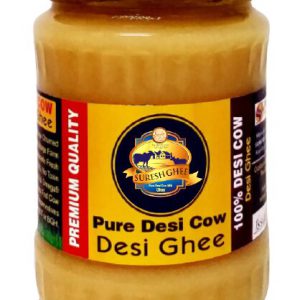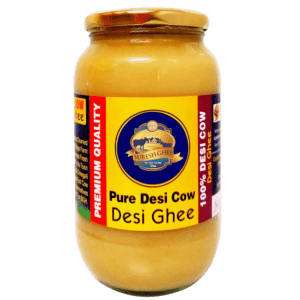Weak digestion creates health issues such as heartburn, gas, bloating, and constipation. What’s happening throughout your body depends on the functioning of the digestion tract. The main function of the gut is to change the shifts of stomach liquid, good bacteria feeding, and gastrointestinal flora, an ecosystem of bacteria in your digestive tract.
When gut health is functioning well, you’re less prone to inflammation and lapses in immunity. Gut health is a collective idiom that includes different factors of the gastrointestinal (GI) system, such as improving digestion, prohibiting the elevation of normal intestinal gut microbiota, and maintaining a state of overall well-being.
A Healthy Gut Charges Strong Immune Health
It is known that gut microbiota is distinctive for everyone and is the superintendent for gut health. Hence, foods that promote the development of good bacteria maintain gut health.
There are some foods that stimulate both gut and overall health. Involving fresh fruits, vegetables, and foods that are loaded in fiber such as beans in the diet is useful to develop good bacteria in the gut.
Selecting fermented food and probiotics are also healthy ways to elevate good bacteria. Eating an adequate amount of probiotics is useful to reduce the risk of stomach inflammation due to food poison.
Unhealthy ways of eating habits, sedentary schedules, and other environmental aspects can alter the activity of the human gut health, which can affect our health in a bad way. The digestive system is also the reason for our immune health.
The Gastrointestinal Immune Health- A new immune system
Lymphoid tissues and lymph nodes are an essential part of the immune system, and these are very much near in our gut. These include several types of immune cells containing activated T-cells, plasma cells, mast cells, dendritic cells, also macrophages.
It is collectively called gut-related lymphoid tissue (GALT). In fact, the number of lymphocytes in the GALT is near to the spleen (lymphatic organ). Additionally, the lining of the intestine is made up of absorptive cells that are now recognized as an essential component of the immune system.
Each day the gastrointestinal tract meets a number of potentially hazardous pathogens through consumed food. Additionally, the immune cells found in the gastrointestinal tract protect the growth of these pathogens and foreign bodies that are taken along with the food.
Read More : Ayurveda and the Golden Goodness of Ghee
Digestive Health and Immunity – A Deep Connection
The digestive system and immune health are deeply linked to one another. The health of well-being is based on gut health. Indeed, our gut commands every part of our health in the process of how we digest our food and how our food sensitivities are connected with our mood, behavior, potency, weight, food fondness, hormone balance, immunity, and overall health.
Gut microbiota functioning is different for every individual and it conducts gut health. Hence, foods that enhance the development of good bacteria offer gut health. There are some foods that promote both gut and general health.
Involving fresh fruits, vegetables, and foods that are loaded in fiber such as beans in the recipes helps to elevate good bacteria levels in the gut. Preferring fermented food and probiotics is also a good method to enhance good bacteria.
Our digestive system contains all the organs starting from the mouth to the large intestine, which assists in the ingestion of food, incorporation of water, and other supplements from the food.
A suboptimal working of the digestive system may cause diarrhea, constipation, bloating, acidity, infectious and autoimmune. Our immune system is a reason to combat infections and prevent us from diseases.
The immune system is made up of many glands, various types of cells, and chemical mediators that can kindle an immune response versus a foreign invader.
Your Digestive System: 8 Ways to Support Gut Health
- Eat Fiber-riched Food: Consume fiber-rich foods such as legumes, beans, peas, oats, bananas, berries, and intake has shown a positive impact on gut health.
- Drink Lots of Water: Maintaining hydration can promote digestion. An adult should drink 1.5 to 2 liters of non-caffeinated fluids per day to stay well-hydrated.
- Eat Probiotics: Probiotics are healthy bacteria that promote or refresh gut flora. Vital sources of probiotics are yogurt, raw apple cider vinegar, soy milk, and dark chocolate.
- Exercise Daily: Healthy body is necessary to solve digestive issues. Regular exercise on a daily basis has been shown to promote gut passage time by nearly 30%.
- Avoid Stress: The stress hormone (cortisol) directly impacts your digestion by leading to an imbalance in the gut bacteria. Exercise stress-reducing activities on a daily basis.
- Get Enough Sleep: Sleep destitution and impeded sleep quality has been associated with poor digestive health. Follow a practice of sleep-wake pattern to enhance bowel syndrome and good gut health.
- Choose the Right Foods: A balanced food loaded with fruits and vegetables proffers the fiber that boosts good bacteria and good gut.
- Choose Ghee to Improve Your Digestion: Desi cow ghee is supercharged with essential fatty acids and supplements, minerals such as vitamin A, E, K2, D, calcium, CLA, and Omega-3.
Benefits of Desi Ghee:
Ghee is one such element that is enriched with antioxidants which is useful to absorb vitamins and supplements for immunity health. Ghee is also meant to be an immune booster. Thus, it is very essential to have a balanced diet in every routine.
Consumption of a particular amount of pure desi cow ghee in your diet can be very effective to enhance the immunity of your body. Having milk with cow ghee daily will also benefit you for everyday problems.
But it does not mean you exaggerate them or fill the plate with large quantities every day. Grass-fed ghee is one such cooking fat that offers various benefits. Thus organic cow ghee in the proper proportion used as regular food consumption is helpful in regulating digestion.
- A spoon of desi cow ghee with a glass of warm milk and turmeric with black pepper detoxifies the digestive system of its impurities. This remedy is helpful for constipation and offers a much-required boost to your immune health.
- One of the most crucial medicinal benefits of ghee is it assists in regulating metabolism. This will greatly refresh your mood while also boosting your energy levels and assisting you to lose weight.
- Ghee is a good source of butyric acid. It acts as probiotic food for the bacteria in the gut.
- Ghee includes vitamin k2, which needs the bones in absorbing calcium and is useful in joint pain.
Read More – Ghee- A short consideration from the Ayurvedic perspective
Conclusion:
Not all ghee products in the market are made by Vedic methods. Hence, you can be ready with various options in the market, from cheap to expensive with varied quality.
The best way to evaluate which ghee is best is its nutritional status and when we are curious about the quality, pure desi cow ghee has the highest nutritional value.
You can buy organic cow ghee online easily and it can be responsible for crucial differences to your food. In a nutshell, desi cow ghee offers many impressive values that impact its ability to avoid your health problems. To buy quality riched ghee for you visit our website: https://sureshfoods.com/.







 WhatsApp us
WhatsApp us
Naveen m...